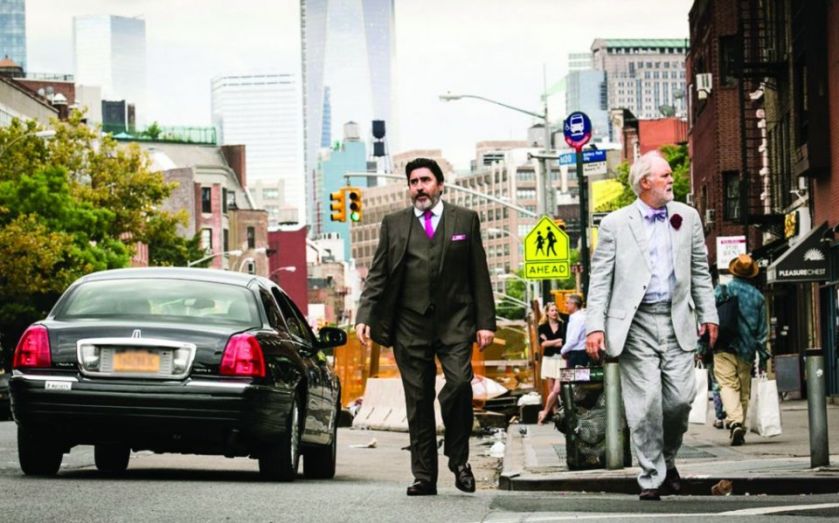Film review: Love is Strange is a backwards romance with heart

Cert 15 | ★★★★☆
Traditional love stories end with a wedding. Love is Strange flips fairy-tale romance on its head, beginning with a marriage and following it up with a sweet, sad separation.
Ben (John Lithgow) and George (Alfred Molina) have been together for 39 years, and when a law change in New York allows same sex couples to marry they embrace the opportunity. But with their relationship made official, the Archdiocese is no longer prepared to look the other way, and George is fired from his job teaching music at a Catholic high school. Unable to meet the mortgage payments on Ben’s pension alone, they are forced to sell their comfortable Chelsea apartment, and with no alternative accommodation available they are forced to live apart.
Ben goes to stay with his nephew’s family where he ends up sleeping on a bunk-bed with their taciturn teenage son, and his well-meaning attempts at small-talk wear on his nephew’s wife. Meanwhile George washes up on the couch of friends who live in their old building, a younger gay couple whose routine of throwing house parties and playing Dungeons and Dragons deprives him of sleep and privacy.
The film conjures detailed characters with remarkable economy. The quality of acting is high, allowing short scenes to draw memorable portraits: a brief telephone conversation showing Ben’s niece extolling the benefits of chromotherapy while her Chinese hairless dog wanders through a green-tinted frame tells us all we need to know about her character. Love is Strange handles its sexual politics with subtlety and lightness, and it also has insightful things to say about the cost of housing, religious oppression, the hidden problem of homelessness and care for ageing relatives.
The film isn’t without its problems, though; minor characters are introduced then dropped, never to be seen again, there is a voiceover where George reads a letter, the contents of which would have played out better in a conversation, and the ending – skateboarding into the sunset to the sound of Chopin – is a grotesque indy movie cliché. Given there is little action, and most of the conflict is suppressed, the decision to have what might have been the climax occur off-screen, and to only vaguely allude to it in a sort of epilogue, might be charitably regarded as a bold narrative experiment.
Despite its shortcomings, Love is Strange is a thoughtful meditation on the fragility and progression of relationships through the different stages of life, with a beautifully understated performance from Alfred Molina.
CRITIC’S CHOICE: FILM
A Most Violent Year: ★★★★★
Oscar Isaac and Jessica Chastain get down and dirty in this dark fable set in 1980s New York
Inherent Vice: ★★★★☆
Joaquin Phoenix and Paul Thomas Anderson combine to great effect again in this stoner classic in waiting